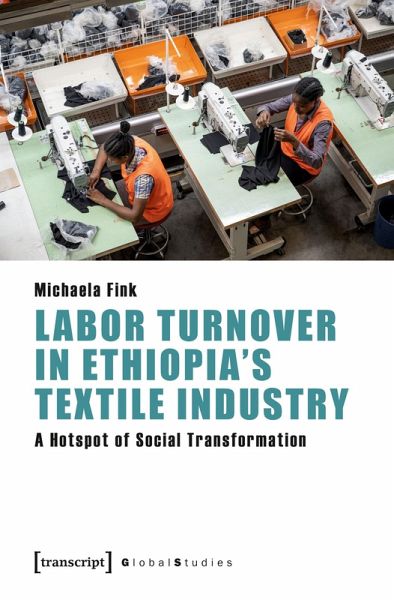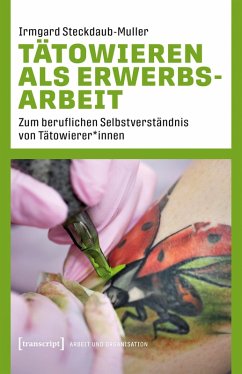
Labor Turnover in Ethiopia's Textile Industry (eBook, PDF)
A Hotspot of Social Transformation

PAYBACK Punkte
0 °P sammeln!
The Ethiopian textile industry is particularly affected by high labor turnover. In a compelling social study, Michaela Fink investigates the causes of this issue, focusing primarily on the voices of the (female) workforce. She illustrates the tension between rural, community-based orientations of women workers and the industrial working environment in which they find themselves. For the women, it is often a balancing act between the rural world they come from and the urban consumerist world they live and work in. They are attracted to modern values of career, consumption and urbanity. At the s...
The Ethiopian textile industry is particularly affected by high labor turnover. In a compelling social study, Michaela Fink investigates the causes of this issue, focusing primarily on the voices of the (female) workforce. She illustrates the tension between rural, community-based orientations of women workers and the industrial working environment in which they find themselves. For the women, it is often a balancing act between the rural world they come from and the urban consumerist world they live and work in. They are attracted to modern values of career, consumption and urbanity. At the same time, it is hardly possible for them to achieve modest prosperity.
Dieser Download kann aus rechtlichen Gründen nur mit Rechnungsadresse in A, D ausgeliefert werden.













